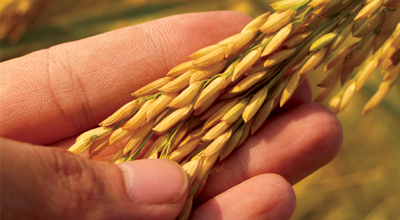
Image: Pixabay
The Brazilian Wheat Industry Association (Abitrigo) recently concluded the compilation of the results of the 2020 Brazilian Wheat Milling Survey, which indicated an increase of 1% in the milling volume, which corresponds to the increase in wheat flour consumption, in last year.
According to the executive president of Abitrigo, Rubens Barbosa, this increase indicates the low influence of the Covid-19 pandemic and also of economic aspects on flour consumption throughout 2020. “This edition of the survey had a high degree of adherence by Brazilian mills, which contributed 77.3% of the calculated values. Furthermore, 13.5% of the data were obtained from official company publications, indicating that 91.2% of the surveys attribute great assertiveness to the numbers”, explained Barbosa.
The research indicated that 12,700,065 tons of wheat were ground, which corresponded to 9.5 million tons of wheat flour in the 156 industrial units operating in Brazil. They are mostly concentrated in the southern region of Brazil, representing 65% of the country's total plants.
According to Abitrigo, the flour produced was primarily consumed in the bakery segment (46.9%), which was complemented by the pasta, biscuits, industrial bread, food service and domestic sectors. An increase in the consumption of flour in 1kg and 5kg packages was observed, for industrial pasta and bread, indicating a migration in the consumption of flour for culinary use and ease of preparation.
{module Form RD}
High wheat prices and difficulties in transfer.
Affected by the appreciation of the dollar and the increase in the costs of imported wheat, factors that directly raised the prices of national grain, mills spent 2020 struggling to pass on these increases to flour prices.
Last year, Brazil imported 6.3 million tons of wheat, representing 50% of national supply needs. ”The market was greatly affected by the costs of imported wheat which, due to its appreciation on the world stage, indicated an increase of 17%, between January and December 2020. Associated with the exchange rate variation of 29.1% in the year (BC), this represented a increase of 50.1%”, highlighted the president.
On the other hand, flour prices, which increased by 33.3% in 2020, did not follow the evolution of production costs. In this scenario, the mills remain under pressure, as the production cost remains high and the transfer to the final product, wheat flour, is still not sufficient.
“The challenges facing Brazilian milling activities are enormous. The essential nature of wheat consumption demands concrete action to ensure security of supply of the grain so that domestic production can grow to, in the medium and long term, reduce or eliminate external dependence and the vulnerability of the domestic market”, concludes Barbosa.
The information is from Attuale Cominição.
By: Gabriel Nascimento | Crops & Market











